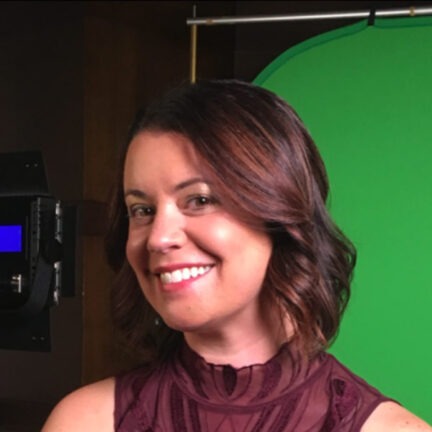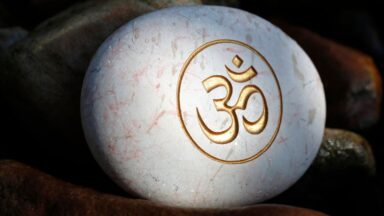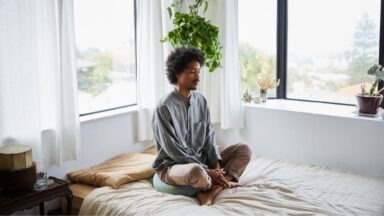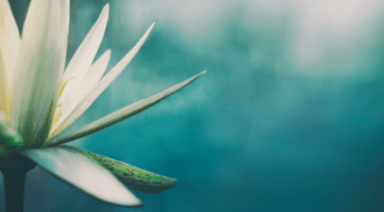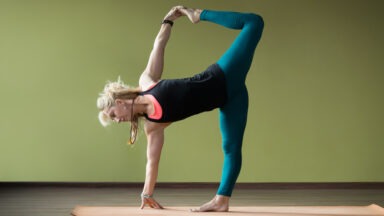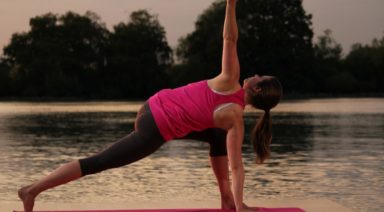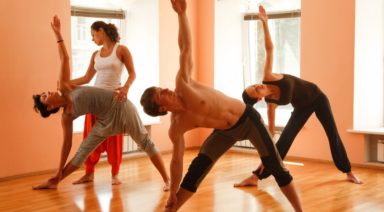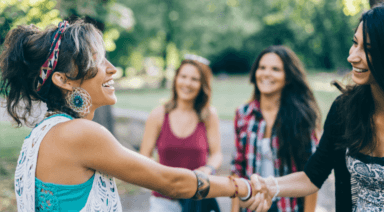Rodney Yee & Colleen Saidman Yee’s Favorite Quotes

In honor of our new Yoga Foundations Guide with Rodney Yee and Colleen Saidman Yee, Gaiam TV sat down with them to get their favorite inspirational quotes as we begin the building blocks to a solid yoga for life practice. This guide is excellent for yoga for beginners or anyone looking to revisit the defining elements of a strong asana practice.
This guide includes sun salutations for beginners and beginning yoga routines perfect for anyone new to yoga.
Get a sneak peek of day 3 sun salutations!
Rodney Yee’s Favorite Quotes
Cling to the one thing that matters, hold onto “I am” and let go of all else. ::Nisargatta Maharaj
…and it is this immediate perception, this choiceness awareness that puts an end to sorrow. ::J. Krishnamurti
Feel the motions of tenderness around you, the buoyancy. ::Rumi
Colleen Saidman Yee’s Favorite Quotes
How long, babe, will you search for what’s not lost? ::Bob Dylan
I am an old man and have known a great many troubles, but most of them never happened. ::Mark Twain
The fruit of silence is prayer. The fruit of prayer is faith. The fruit of faith is love. The fruit of love is service. The fruit of service is peace. ::Mother Teresa
Yoga Foundations with Rodney Yee & Colleen Saidman Yee
Yoga guides — they’re not just for beginners anymore. That’s why Gaiam TV partnered with yoga pioneers Rodney Yee and Colleen Saidman Yee. Over the last 15 years, they’ve cultivated the best approach to foundational yoga.
Watch the video below, and sign up for the guide.
What Is the Om Mantra: Origin and Meaning

The mantra “Om” is much more than a simple syllable in yoga practice; it is an ancestral link with the universe and the divine. This article explores the secrets of this powerful mantra, delving into its origin, pronunciation, and meaning in yoga and spirituality.
Table of Contents
- Meaning of the Om Mantra
- What Is the Origin of the Om Mantra?
- How Is 'Om' Pronounced Correctly?
- What Does Om Mean in Yoga?
- Why Is Om Chanted in Yoga Classes?
- Benefits of Chanting the Om Mantra
- What Does the Om Symbol (ॐ) Represent?
Meaning of the Om Mantra
The Om mantra, symbolized by the sacred ॐ, is one of the most ancient and revered mantras in the spiritual traditions of India. It represents the essence of the universe, being a primordial sound that encapsulates truth and ultimate reality. In its vibration, Om encompasses everything that exists and everything that does not exist. This sacred sound is a synthesis of the spiritual and the material, symbolizing the union of the individual soul with the Divine, the Brahman, the ultimate reality.
More than just a syllable, Om is a symbol of connection and unity. In spiritual practices such as yoga and meditation, chanting Om helps align individual energies with those of the universe. Each repetition of Om is a reminder of our relationship with creation and a call for harmony and inner peace. It acts as a bridge between the material and spiritual worlds, facilitating the path to enlightenment and profound self-understanding.
What Is the Origin of the Om Mantra?
The origin of the Om mantra dates back to the ancient scriptures of India, such as the Vedas and the Upanishads, which are thousands of years old. In these texts, Om is presented as a cosmic sound, the original sound of the universe from which everything else emerged. This concept is found in various Dharmic philosophies and religions, such as Hinduism, Buddhism, and Jainism, where Om is considered the root of all spiritual knowledge.
In Hindu philosophy, Om represents the whole, the totality of existence, and is associated with the most important gods such as Brahma, Vishnu, and Shiva. In Buddhism, especially in tantric traditions, it holds great importance as part of longer mantras. This universality of Om underscores its significance in spiritual and philosophical practices, being a symbol of unity, peace, and spiritual knowledge throughout the ages.
How Is “Om” Pronounced Correctly?
Correct pronunciation of Om is essential for its effect and meaning. The syllable is pronounced “AUM” and consists of three sounds: A (ahh), U (ooh), and M (mmm). These three sounds symbolize different aspects of divinity and existence. The sound “A” represents the beginning, creation; “U” symbolizes preservation, and “M” represents transformation or destruction. When combined, these sounds represent the complete cycle of existence.
When pronouncing Om, the sound begins with an open and deep “A,” which starts in the throat and opens toward the chest. The sound transforms into “U,” moving toward the palate and vibrating in the middle of the mouth. Finally, the “M” closes the mantra, with a vibration that resonates in the front of the mouth and skull. This process not only has spiritual significance but also helps align and calm the mind and body, preparing them for meditation or yoga practice.
What Does Om Mean in Yoga?
In yoga, Om represents much more than a simple chanting or meditation practice. It is a symbol of profound connection between the practitioner and the universe. By chanting Om at the beginning or end of a yoga session, the goal is to harmonize the mind, body, and spirit with universal energies.
This sacred sound acts as a catalyst for mental tranquility and concentration, creating a space of serenity and focus for practice. Om in yoga not only prepares the body and mind for the session but also symbolizes the intention to unify the individual self with the cosmic whole, facilitating a deeper and more enriching experience.
Why Is Om Chanted in Yoga Classes?
Chanting Om in yoga classes serves several purposes. First, it creates a bond of connection and unity among participants, establishing a collective atmosphere of focus and serenity. Additionally, the vibrant sound of Om helps calm the mind and center attention, clearing mental and emotional noise.
Chanting Om is also considered beneficial for physical health, as the vibration generated can help relax muscles and calm the nervous system. This practice is not only a symbolic introduction or conclusion to the yoga session but also a powerful tool for deepening the spiritual and physical experience of yoga.
Benefits of Chanting the Om Mantra
Reciting the Om mantra has multiple benefits for both the mind and body:
- Reduces stress and anxiety: The vibration of Om induces relaxation, decreasing tension and mental restlessness.
- Improves concentration: The focus required to correctly chant Om helps enhance attention and mental clarity.
- Encourages spiritual connection: Repeating Om can intensify the feeling of spiritual connection and unity with the universe.
- Aligns body energy: The vibration of Om can help balance and align the chakras or energy centers in the body.
- Promotes respiratory health: Chanting Om involves conscious breath control, which can improve lung capacity and breathing.
What Does the Om Symbol (ॐ) Represent?
The Om symbol (ॐ) is a rich and complex visual representation of the Om sound. Each part of the symbol has a specific meaning: the lower curve symbolizes the waking state, the upper curve represents the deep sleep state, and the curve extending outward symbolizes the dream state. The crescent and dot at the top symbolize the transcendental state, a level of consciousness beyond conventional physical and mental states.
This symbol not only represents different states of consciousness but also the essential aspects of the universe: matter, soul, and God. The Om symbol is a visual reminder of the connection between the microcosm (the individual) and the macrocosm (the universe). In spiritual practice and daily life, the Om symbol serves as a constant reminder of our essential nature and our connection with everything that exists.
Whether through chanting or visual representation, Om is a timeless tool for those seeking harmony, balance, and a deeper connection with themselves and the universe.

